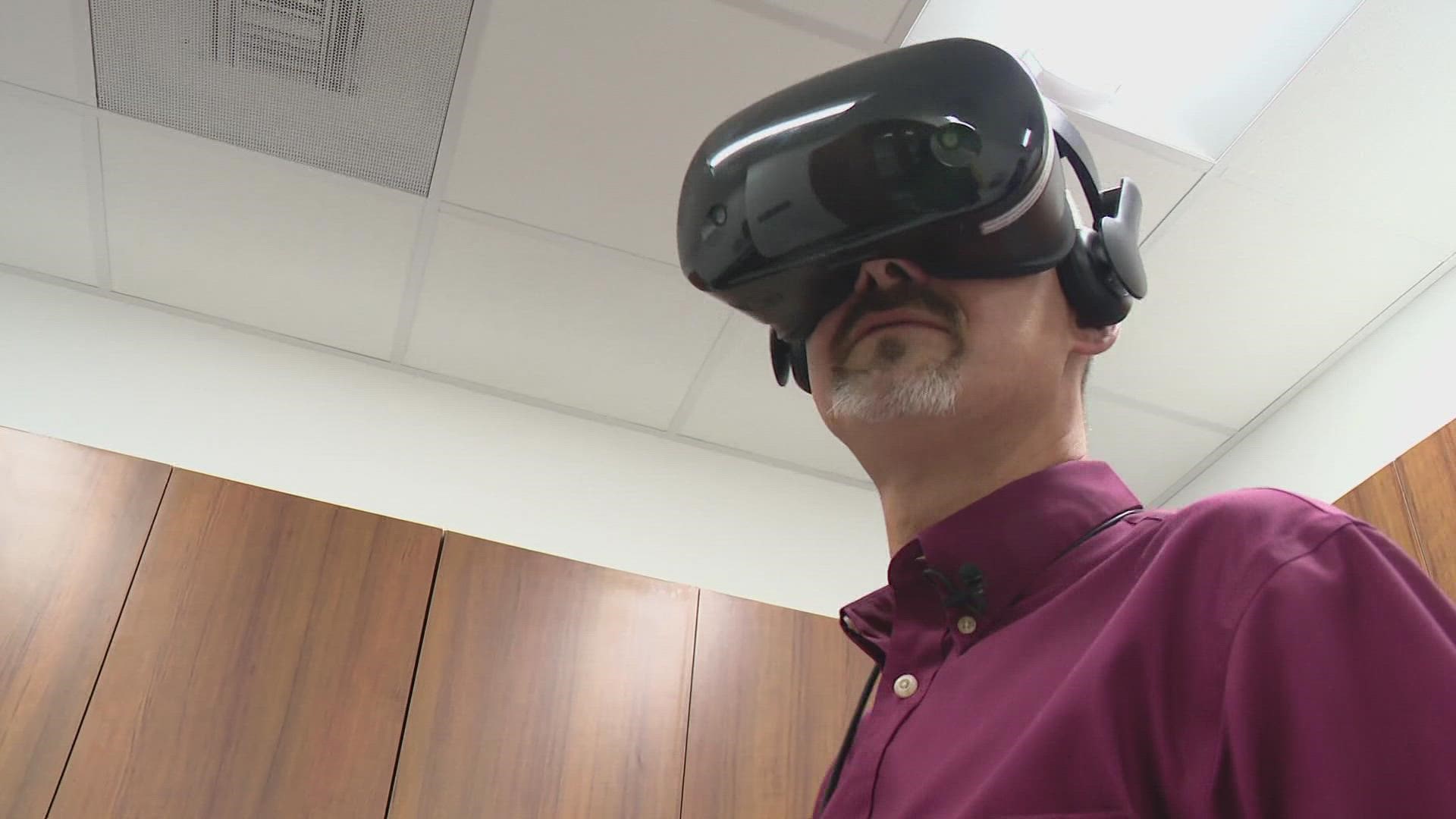BLOOMINGTON, Ind. — A recent study at Indiana University School of Medicine showed that virtual reality sessions can help Hoosiers who are battling substance abuse.
According to the CDC, more than 2,300 people died last year in Indiana due to a drug overdose.
Brandon Oberlin is an assistant professor of psychiatry at the IU School of Medicine and led the virtual study over the last four years.
That study placed a person who is in early substance abuse recovery inside a virtual environment with their future self as avatars, which appear very realistic.
During the study, Oberlin and other researchers looked at 21 different people who were able to speak and have conversations with their future selves showing what life would look like either on or off their addictions.
Oberlin said out of 21 people, 18 remained clean and sober for that 30-day period and beyond.
"It seems like the people that are having more of a connection with their future self after their experience are doing better. That's what it looked like," Oberlin said. "Furthermore, across all participants before and after the virtual reality experience, we found a big increase - a near doubling - of delayed tolerance. So, we can actually quantify how many people are willing to wait for a reward."
Oberlin said the majority of the people that went through the trial were emotional when they saw themselves virtually in the future.
"Somebody said, 'It made me feel like these were things that I didn't know I could have.' Because there's a good future and a bad future. And she found that the good future was really encouraging and gave her hope," Oberlin said. "Other people were more shocked and disturbed by the bad future. We had one person said the bad future wasn't shocking enough."
Oberlin and other researchers hope to have more trials in the coming months and years with larger groups.
As for this type of coping technology becoming public, Oberlin said it could be awhile since it still needs to get federally approved.

